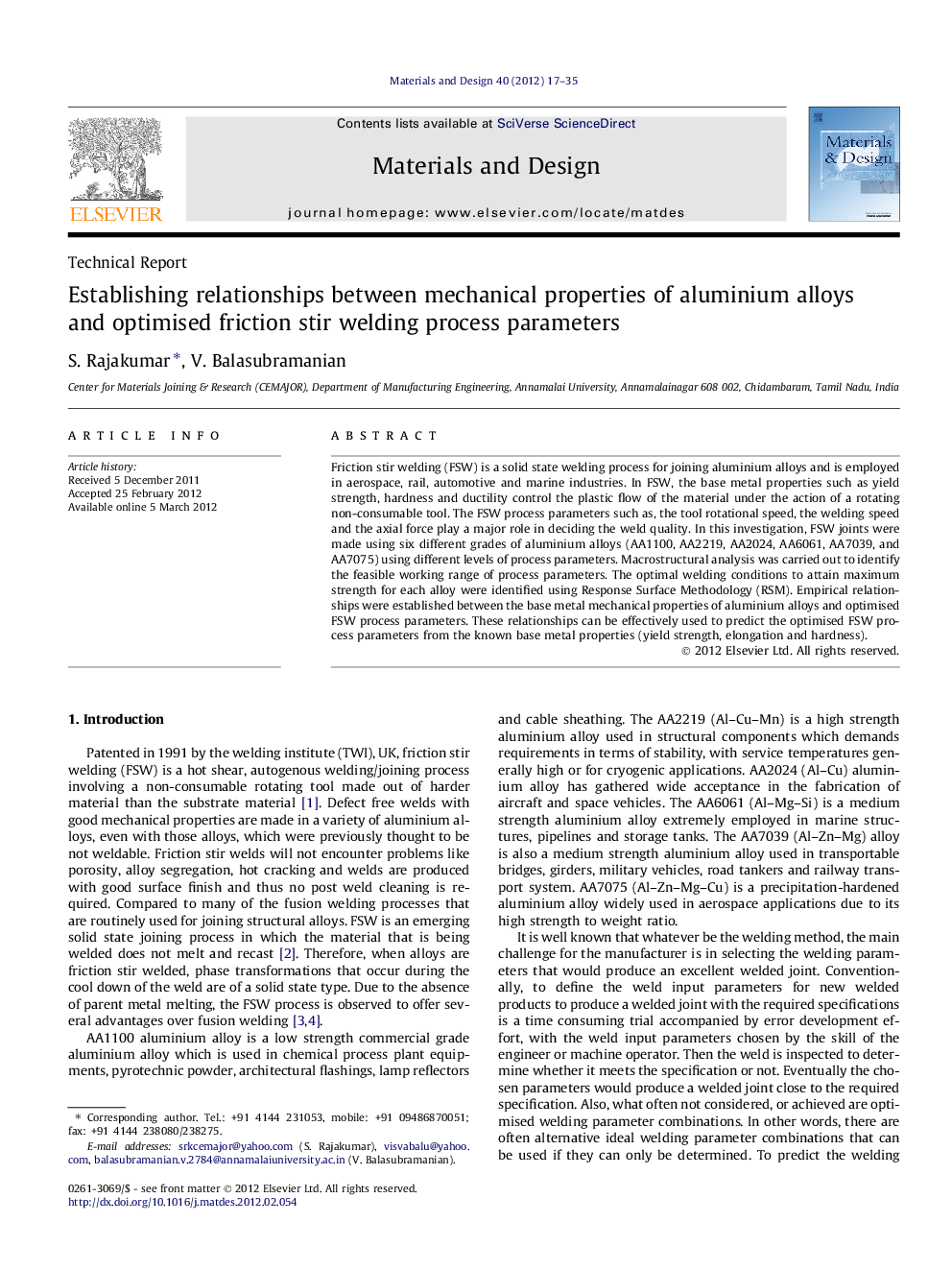| Article ID | Journal | Published Year | Pages | File Type |
|---|---|---|---|---|
| 830570 | Materials & Design (1980-2015) | 2012 | 19 Pages |
Friction stir welding (FSW) is a solid state welding process for joining aluminium alloys and is employed in aerospace, rail, automotive and marine industries. In FSW, the base metal properties such as yield strength, hardness and ductility control the plastic flow of the material under the action of a rotating non-consumable tool. The FSW process parameters such as, the tool rotational speed, the welding speed and the axial force play a major role in deciding the weld quality. In this investigation, FSW joints were made using six different grades of aluminium alloys (AA1100, AA2219, AA2024, AA6061, AA7039, and AA7075) using different levels of process parameters. Macrostructural analysis was carried out to identify the feasible working range of process parameters. The optimal welding conditions to attain maximum strength for each alloy were identified using Response Surface Methodology (RSM). Empirical relationships were established between the base metal mechanical properties of aluminium alloys and optimised FSW process parameters. These relationships can be effectively used to predict the optimised FSW process parameters from the known base metal properties (yield strength, elongation and hardness).
Graphical abstractA contour plot is shows to visually display the region of optimal factor settings. The optimum tensile strength is exhibited by the apex of the response surface.Figure optionsDownload full-size imageDownload as PowerPoint slideHighlights► FSW parameters were optimised to obtain defect free sound welds. ► Response and contour plots were developed to identify the interaction effect of FSW parameters. ► Empirical relationships were established to predict the tensile strength. ► Developed relationships can be effectively used to find the optimum FSW process parameters.
